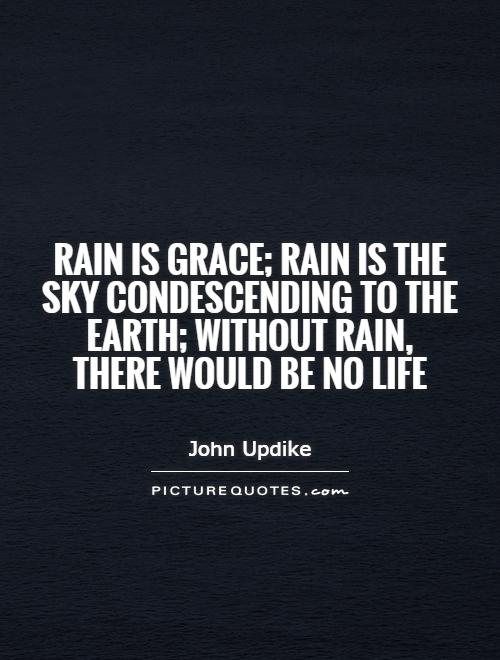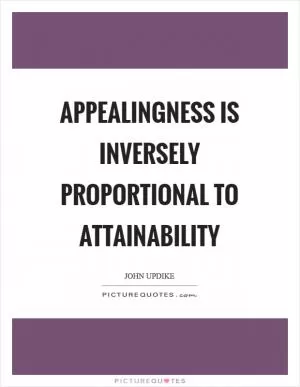Rain is grace; rain is the sky condescending to the Earth; without rain, there would be no life

Rain is grace; rain is the sky condescending to the Earth; without rain, there would be no life
John Updike, a prolific American writer known for his keen observations of everyday life, would likely appreciate the sentiment that "rain is grace; rain is the sky condescending to the Earth; without rain, there would be no life." Updike's writing often delves into the complexities of human existence and the interconnectedness of all things, making him a perfect candidate to explore the significance of rain in the natural world.In many of Updike's works, he uses the natural world as a backdrop to explore deeper themes of love, loss, and the passage of time. Rain, with its ability to nourish and sustain life, serves as a powerful symbol of renewal and rebirth. Just as rain brings life to the Earth, Updike's characters often experience moments of growth and transformation in the midst of life's storms.
In his novel "Rabbit, Run," Updike explores the life of Harry "Rabbit" Angstrom, a man grappling with the complexities of marriage, fatherhood, and the search for meaning in a seemingly mundane existence. Throughout the novel, rain serves as a recurring motif, symbolizing both the cleansing power of forgiveness and the inevitability of change. Just as rain can wash away the dirt and grime of the world, Rabbit must confront his own flaws and mistakes in order to find redemption.












 Friendship Quotes
Friendship Quotes Love Quotes
Love Quotes Life Quotes
Life Quotes Funny Quotes
Funny Quotes Motivational Quotes
Motivational Quotes Inspirational Quotes
Inspirational Quotes